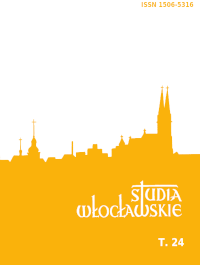Human and Christian values of Gidar funeral rites (Northern Cameroon)
DOI:
https://doi.org/10.52404/ttnwloc.stwl.24.28Keywords:
funeral rites, good and bad death, inculturation, mission to the GidarAbstract
The Gidar of northern Cameroon make a distinction between a good death and a bad one. As a rule, the death of a person of advanced years, who has children, who is prepared to pass on, is counted as a good death. Along with natural death, the death of a warrior is also counted as a good death. A bad death does not fulfill these conditions. There are three basic stages in funeral rites: burial preparations, the burial itself, and what is known as the second burial, or, day of mourning, usually designated from one month to a year after the actual burial. Funeral rites are a condition for entering the world of ancestors – the Gidar teda. These rites clearly show a spiritual vision of life. The Gidar see man as a being composed of material and spiritual elements, but treated as a single totality. Thanks to the funeral rites and to the purification rites following them, the deceased ceases to be a trememdum, as a taboo, and becomes an admirandum, as an ancestor. This is expressed by the installation of the deceased as an ancestor. The transition of the deceased to the world of ancestors does not separate him from his earthly family because he is continually present in their life. There are some points of contact between Gidar funeral rites and the traditional Christian approach. These encourage significant innovations in Church funeral rites.
Downloads
References
Jan Paweł II, Encyklika Redemptoris missio, 7 XII 1990, w: Jan Paweł II, Encykliki Ojca Świętego Jana Pawła II, Kraków 2007, s. 509–616.
Secretariatus pro non Christianis, À la rencontre des religions africaines, 2 ième édition, Milano – Roma [s.a.].
Baskouda Shelley J.B., Kirdi est mon nom, Yaoundé 1993.
Baumann H., Westermann D., Les peuples et les civilisations de l’Afrique suivi de les langues et l’éducation, traduction française par H. Homburger, Paris 1948.
Collard C., Du bon ordre des enfants. Etude sur la germanité guidar, „Anthropologie et Société”, 4(1980), nr 2, s. 39–64. https://doi.org/10.7202/000962ar
Collard C., La société guidar du Nord-Cameroun. Compte rendu de mission, „L’homme – Revue Française d’Anthropologie”, 11(1971), nr 4, s. 91–95. https://doi.org/10.3406/hom.1971.367215
Collard C., Les „noms-numéros” chez les Guidar, „L’homme – Revue Française d’Anthropologie”, 13(1973), nr 3, s. 45–59. https://doi.org/10.3406/hom.1973.367358
Collard C., Organisation sociale des Guidar ou Baynawa (Cameroun septentrional), Paris 1977 (dysertacja doktorska złożona na uniwersytecie Paris X – Nanterre, mps).
Culte à un élèment de la nature. Culte de l’Arbre, w: Univers religieux africain et foi en Jésus Christ. Stage pastoral, Fort Archambault, 21 Juin – 11 Juillet 1972, [Sahr 1972], s. 29–35.
Draman O.L., Symbole religieux dans l’ethnie Ngambay, Ottawa 1975, mps.
Əmanman Meleketeni. Nouveau Testament, guidar, traduction, rédaction et révision linguistique: L. Bouba, T. Doulaneni, W. Kozioł, J. Maingle, M. Oumarou, J. Różański, K. Zielenda, Pelplin 2008.
Frajzyngier Z., A Grammar of Gidar, Frankfurt am Main 2008.
Froelich J.-C., Les montagnards paléonigritiques, Paris 1968.
Funérailles traditionnelles. Attitudes des chrétiens durant ces célébrations, „A l’écoute de la RESRAT”, 1986–1988, nr 2, s. 8–20.
Kapuścik F.Z., Religie Afryki Zachodniej wobec współczesnych przemian, Warszawa 1997.
Kozioł W., Mainglé J., Grammaire guidar, Figuil 1993.
Kurek A., Wierzenia i obrzędy Gidarów, ludu północnokameruńskiego. Studium historyczno-hermeneutyczne, Warszawa 1988.
La mort chez les Bandas de R.C.A., w: Univers religieux africain et foi en Jésus Christ. Stage pastoral, Fort Archambault, 21 Juin – 11 Juillet 1972, [Sahr 1972], s. 28–29.
Lembezat B., Les populations païennes du Nord-Cameroun et de l’Adamawa, Paris 1961.
Les Kirdi du Nord-Cameroun, red. Y. Schaller, Strasbourg 1973.
Lestringant J., Le pays de Guider au Cameroun. Essai d’histoire régionale, Versailles 1964.
Mali’i ahin ti maya ta. Przysłowia gizigijskie, red. J. Różański, Warszawa 2000.
Mbiti J.S., Afrykańskie religie i filozofia, przeł. K. Wiercińska, Warszawa 1980.
Missel de makada. I Sazlaga na Messe. Liturgie de la Messe, Figuil – Poznań 1997.
Missel de makada. II Ezva „A”. Lectures du missel dominical et festif, Année A, Figuil – Poznań 1996.
Missel de makada. III Ezva „B”. Lectures du missel dominical et festif, Année B, Figuil – Poznań 1996.
Missel de makada. III Ezva „C”. Lectures du missel dominical et festif, Année C, Figuil – Poznań 1994.
Pawlik J.J., Expérience sociale de la mort. Étude des rites funéraires des Bassar du Nord-Togo, Fribourg 1990.
Pawlik J.J., Śmierć w myśli afrykańskiej, „Przegląd Humanistyczny”, 46(2002), nr 1, s. 93–108.
Pawlik J.J., Zaradzić nieszczęściu. Rytuały kryzysowe u ludu Basari z Togo, Olsztyn 2006.
Piłaszewicz S., „Niebo” i „piekło” w kulturach Czarnej Afryki, „Euhemer”, 35(1991), nr 3, s. 3–24.
Piłaszewicz S., Języki czadyjskie, Warszawa 1998.
Psaumes na Makada (gidar), traduction, rédaction et révision linguistique: L. Bouba, T. Doulaneni, W. Kozioł, A. Madi, J. Maingle, M. Oumarou, J. Różański, K. Zielenda, Figuil (Cameroun) – Varsovie (Pologne) 2015.
Różański J., Inkulturacja Kościoła wśród ludów Środkowego Sudanu, Poznań 2004.
Różański J., Migracje Gidarów (północny Kamerun) dawniej i dziś, w: Afryka i świat a problem migrantów i uchodźców. Kwestie ogólne – historia i teraźniejszość, red. A. Żukowski, Olsztyn 2017, s. 77–92 (Forum Politologiczne, t. 24).
Rzewuski E., Azania zamani. Mity, legendy i tradycje ludów Afryki Wschodniej, Warszawa 1978.
Seligman C.G., Ludy Afryki, przeł. E. Promińska, Warszawa 1972.
Downloads
Published
How to Cite
Issue
Section
License
Copyright (c) 2022 Studia Włocławskie

This work is licensed under a Creative Commons Attribution 4.0 International License.




